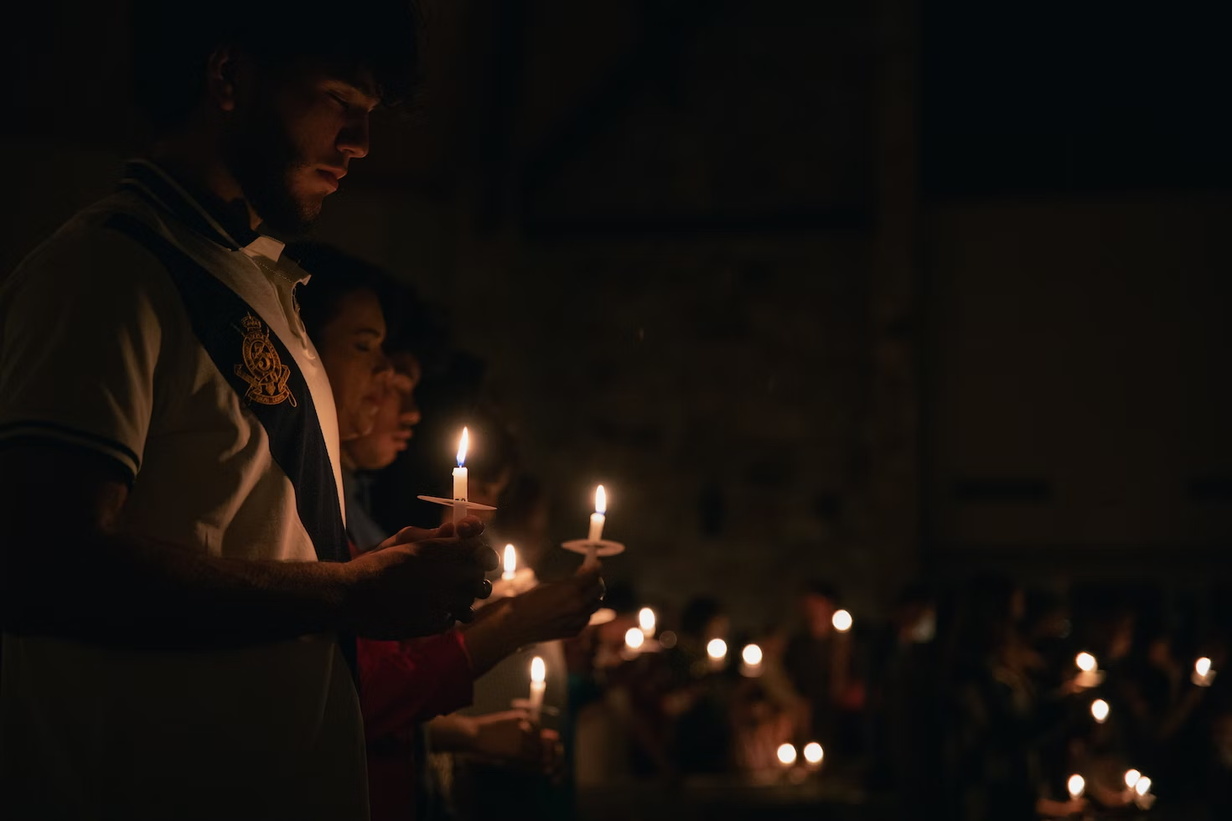
How To Save A Life: An Inside Look At The Local Task Force Striving To Prevent School Shootings
By Craig Manning | April 7, 2023
“We’re not going to fix it.”
Those words were spoken last week by Tennessee United States Representative Tim Burchett (R-Knoxville) after a shooter gunned down six people – including three nine-year old children – at The Covenant School in Nashville.
According to Jay Berger, the co-founder of a Traverse City task force called Safer Kids Safer Schools (SKSS), that mindset – that America’s school shooting problem is impossible to solve – is a common one. The dialogue around mass shootings, he says, is so wrapped up in partisan politics, debates about constitutional rights, mental health stigmas, and plain old misconceptions that many people on both sides of the political divide can’t see a realistic endpoint for all the bloodshed.
With SKSS, though, Berger and his compatriots are trying to dismantle that mindset – and to empower the entire northern Michigan community to do its part in preventing shootings and saving lives.
“The Record Eagle recently ran a great piece about Traverse City students who had gone to Michigan State, and about what their reaction to the MSU shooting was,” Berger tells The Ticker. “And the thing that concluded the article was how those students felt hopeless; they felt like nothing was ever going to change. That really bothered me. Who wants their kids and grandkids to grow up feeling hopeless?”
It was a similar feeling of hopelessness that first inspired Berger to action. “For me, the breaking point was Uvalde,” he says, referring to the May 2022 shooting at Robb Elementary School in Uvalde, Texas, which left 19 children and two teachers dead. “So I rallied bunch of people to go to a Traverse City Area Public Schools (TCAPS) board meeting in early June, and the task force grew out of that.”
SKSS ended up with a team of about 30 members, ranging from students and school counselors, to community members, to Traverse City Police Chief Jeff O’Brien and TCAPS Safety & Security Coordinator Patrick McManus. The group also hired a professional facilitator, who led them through seven meetings between October and January. The result of that work is a 17-page draft report that SKSS will be sharing with the public at a series of forthcoming community input sessions. The report identifies five conclusions around school safety, as well as recommendations from SKSS on how the northern Michigan community might start making strides toward school shooting prevention.
One thing readers won’t find in the SKSS report is mention of gun control measures.
“We made a decision at the start that we would not discuss gun safety, gun control, or Second Amendment issues, and the reason for that is we wanted to focus on things that we could control locally,” Berger explains. “We didn’t want to be lobbying people and getting petition signatures. We really wanted to focus on doing stuff, and on answering the question, ‘What specific actions could we take locally that would help?’”
The major takeaways and recommendations included in the SKSS report center around youth mental health and engagement, and on how those things can make it easier to spot warning signs, boost early intervention methods, and combat the feelings of isolation and disconnection that have so often been identified after the fact in school shooters. Both anecdotally and statistically, Berger says, there’s evidence that shootings can be averted with the right interventions.
In 2021, the National Threat Assessment Center – itself part of the U.S. Secret Service – analyzed 67 “disrupted plots against K-12 schools from 2006-2018,” and found that “individuals contemplating violence often exhibit observable behaviors, and when community members report these behaviors, the next tragedy can be averted.” That report called for further training and resources to assist classmates, teachers, coaches, school resource officers, counselors, parents and family members, and community members in identifying and reporting potential warning signs before they lead to tragedy. One key recommendation included in the SKSS report urges schools to increase efforts that "teach warning signs of violence and promote the use of reporting platforms."
Berger also points to a TED Talk called “I Was Almost A School Shooter” as one of the core texts for the SKSS group as they drafted their recommendations. In that presentation, the speaker, named Aaron Stark, tells the story of how a bad home life, bullying at school, and other challenges once led him to obtain a gun and plot a school shooting.
“And the only reason he didn’t do it was because his one friend invited him over to share a meal and watch a movie,” Berger says. “It was because of that one evening that this school shooting never happened. Sometimes, things that seem so small and so simple can have the biggest impact.”
In his Ted Talk, Stark puts it this way: “Give love to the ones you feel deserve it the least, because they need it the most.”
“That message resonated so much with our task force, because most of us aren’t exposed to that kind of stuff,” Berger says of the abusive, addiction-ridden family life that was the root of much of Stark’s turmoil. “Kids should be celebrated in families, and supported. But we know there are a lot of kids out there that don’t have that. And that’s where the community piece can really come in. Anyone can say, ‘What if I can make a difference by being a Big Brother, or a Norte coach, or by starting a community theater for kids, or becoming a Taekwondo coach,’ or whatever it might be. I think it’s important that we all have interest in this issue, and ask, ‘Are we taking care of our young people?’ or ‘Do they have somebody that can be a good influence for them?’”
Going forward, SKSS has a $15,000 Rotary Seed Grant to gather community input – a process the group will begin in earnest next week. The first session, scheduled for Thursday, April 13 from 6-8pm at the Traverse City Central High School cafeteria, is intended for local professionals who work with or around kids – including teachers, counselors, mental health professionals, children’s advocacy workers, representatives from faith-based entities, and members of youth-focused organizations like Big Brothers Big Sisters, Norte, and the YMCA. The second session, scheduled for Monday, April 17 (tentatively at the same time and place) is “for any and all community members.” SKSS will also hold an open-to-the-community virtual engagement session at 6pm on Wednesday, April 19.
A second round of sessions is planned for the week of May 15, and a youth advisory group session is also in the plans, with “details TBD.”
Per Berger, those interested in being part of the next steps can RSVP for the community input sessions and request a copy of the SKSS draft report by sending an email to sksstc2022@gmail.com.
Comment






